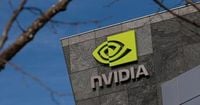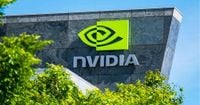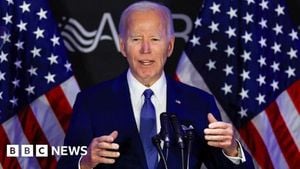Nvidia, the AI chip giant, is facing significant new restrictions from the U.S. government regarding the export of its H20 chips to China, a move that could cost the company billions and disrupt its production line. On April 15, 2025, Nvidia disclosed in an organizational statement that the government had informed them on April 14 that these restrictions would be enforced indefinitely.
The company warned that the new regulations could lead to financial repercussions of around $5.5 billion during its first fiscal quarter, attributed to inventory write-offs and related commitments associated with the H20 series. "The products affected may be used in or converted to supercomputers in China," Nvidia stated, reflecting concerns from U.S. officials about the potential military applications of these technologies.
Following the announcement, Nvidia's stock fell by approximately 6% in after-hours trading, while shares of its competitor, Advanced Micro Devices (AMD), also dropped. The restrictions come as part of a broader trend of tightening export controls on semiconductor technologies, particularly those that could enhance China's technological capabilities.
Previously, former President Donald Trump had considered similar measures, and the Biden administration has continued on this path, expanding the scope of export controls to include a wider array of semiconductor manufacturing tools and high-bandwidth memory processors essential for AI applications.
While the H20 chips are designed to comply with earlier U.S. restrictions, they are still considered a risk for export to China, which has been identified as a primary competitor in the AI sector. Nvidia has argued that these tightened restrictions could inadvertently bolster China's resolve to achieve technological independence from the U.S.
In an effort to mitigate the impact of these restrictions, Nvidia has announced a massive investment of $500 billion to develop AI infrastructure within the United States over the next four years. This investment aims to create a robust supply chain for AI technologies and reduce reliance on foreign manufacturing.
According to Nvidia, sales to American companies accounted for 53% of its total sales in the last fiscal year, underscoring the importance of domestic markets amidst escalating geopolitical tensions. The company has also highlighted that the H20 chips have gained popularity in China, particularly as the country has been unable to access higher-powered AI chips due to ongoing restrictions.
The new export licensing requirements were communicated to Nvidia on April 9, 2025, and they include not only the H20 chips but also any similar integrated circuits with memory capabilities or bandwidth connectivity. This move is intended to prevent potential use or conversion of these products in Chinese supercomputers.
As the implications of these restrictions unfold, Nvidia's financial results for the first quarter of 2026, ending April 27, 2025, are expected to reflect the significant impact of these new export controls. The company's leadership is now faced with navigating a rapidly changing landscape as it seeks to balance compliance with government regulations while continuing to innovate in the competitive AI sector.
In summary, the U.S. government's latest decision to impose restrictions on Nvidia's H20 chip exports to China marks a pivotal moment in the ongoing battle for technological supremacy between the two nations. As companies like Nvidia adjust to these challenges, the broader implications for the global semiconductor market and the AI industry remain to be seen.






